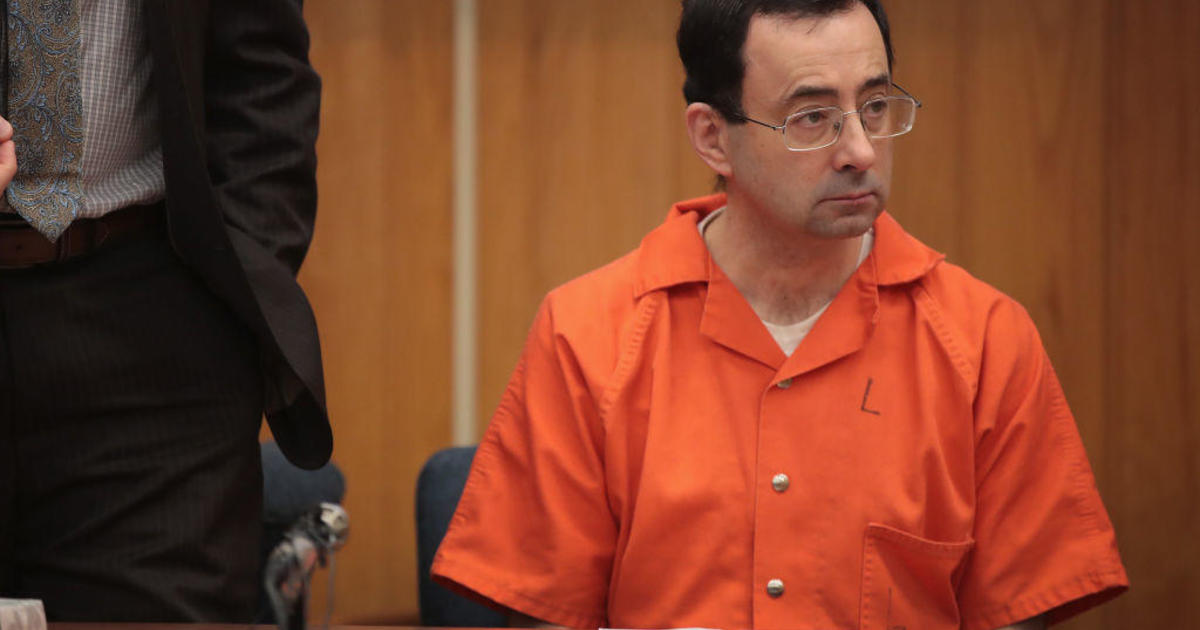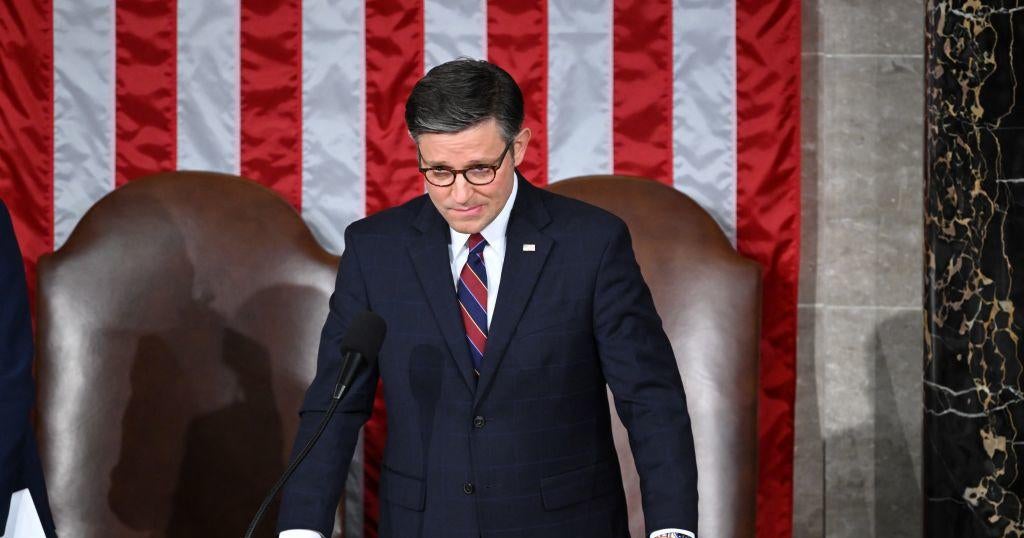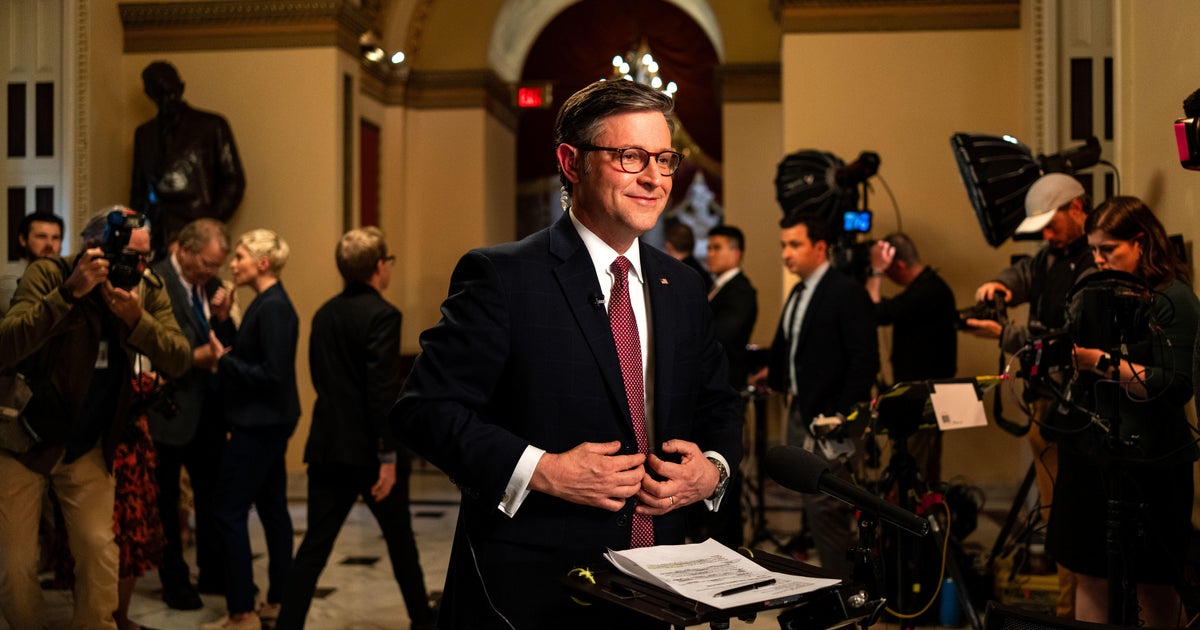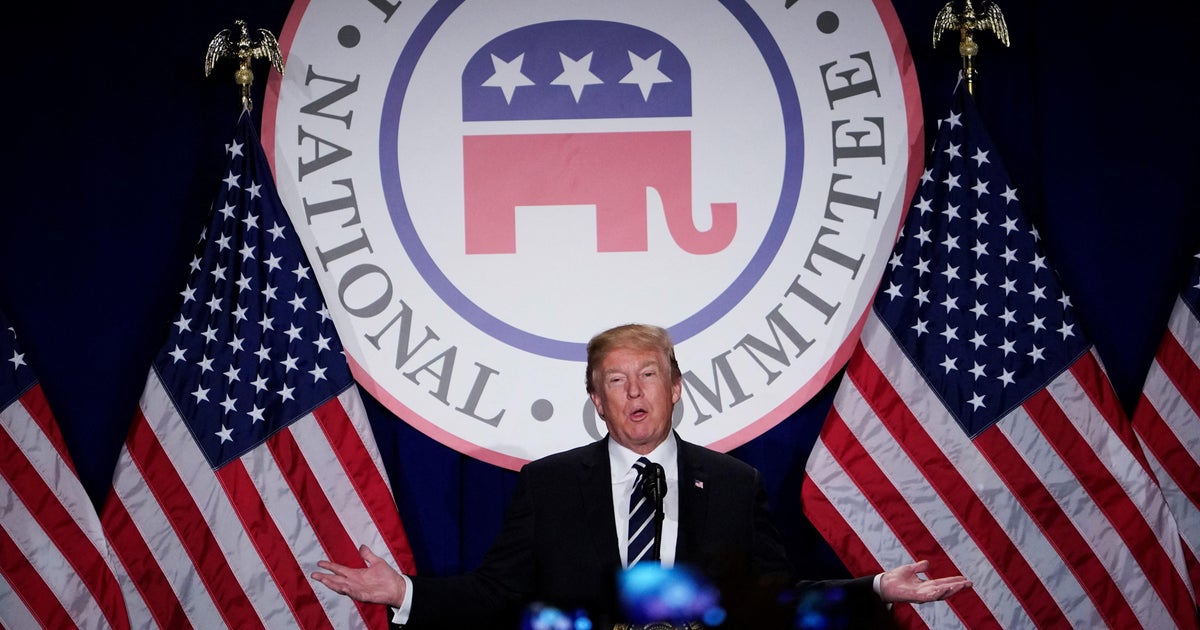To compete in a crowded field, Democratic candidates look to Iowa's rural voters
The Iowa caucuses are just under nine months away. And given the historically large size of the Democratic presidential field, candidates are already looking for new ways to compete in the Hawkeye State.
Several veteran Iowa Democratic strategists and officials tell CBS News that on caucus night, the state's rural vote will play a major role in determining the final results. But competing with rural voters, who have tended to drift away from Democrats in recent years, means campaigns will need to develop novel strategies.
One of the key factors will be finding new or non-regular caucus goers, especially in rural areas, according to Democratic strategist Jeff Link.
"You are quickly going to run through the list of previous caucus goers. Everyone will be calling that list first," said Link. "You are going to run out of places to go in the city and then you are going to start scouring the countryside."
About a third of Iowa's state and district level delegates come from rural counties. Iowa will award 49 national delegates, based on results at the state and district level, meaning rural caucus results will affect about a third of the national delegates the state awards to presidential candidates.
"I think the rural vote can make the difference whether someone finishes first, second or third," said former Iowa Lieutenant Gov. Patty Judge.
Judge, who now chairs the group Focus on Rural America, says that there is "nothing to cement the deal like a visit in person" and believes candidates are campaigning in rural areas earlier than usual.
"We really are looking for some partners," Judge said of rural voters. "We don't need saviors. We need people that are going to understand and work with us."
Grant Woodard, a Democratic former campaign operative who worked on Hillary Clinton's 2008 Iowa campaign, said that urban areas would still hold the lion's share of caucus goers. But he also noted that Sen. John Edwards' emphasis on rural voters helped propel him to a surprise second-place finish in the 2008 caucuses.
"You can get a lot of bang for your buck in these places, especially if you have a message that is tailor made to rural people," Woodard said. "They really tried to create this rural coalition and talk about rural poverty and rural issues."
Woodard added that while Iowa has a culture where "people expect to be wooed," that doesn't require hitting all 99 counties in Iowa. He suggested that candidates visit "every town with a stoplight," adding that "that surprisingly cuts out a lot of places."
For Judge, a "smart, aggressive" strategy for winning over rural voters comes down to understanding "that their problems are real" and to "have some answers for them."
"We have seen presidential candidates before. We can pretty well tell whether somebody is genuine or whether or not they care about what's going on here," she said.
A message for rural voters, according to conversations with presidential campaigns, will need to focus not just on agriculture and trade, but also on access to health care, boosting economic growth, improving education and expanding broadband internet service.
Some campaign aides are emphasizing their candidates' success with rural voters in their home states, like Minnesota Sen. Amy Klobuchar. Meanwhile, California Sen. Kamala Harris' state campaign chair Deidre DeJear says organizers known as "Kamala Captains" will be based in rural parts of the state, rather than urban areas.
But in order to win those rural voters, Democratic candidates will need to know how to talk to them.
"I think Democrats have been condescending to rural voters," Jeff Link said. "The whole dialogue in 2016 about 'if you vote for Trump you're a racist, you're a misogynist, you're all these things,' I think that's not true. I think that's harmful to our party and our brand."
Laura Hubka, the chair of the Howard County Democrats in rural northeast Iowa, says that the "more people you talk to in rural areas, you'll start to get a message of what they really want."
Some campaigns have rolled out policies that they say came from discussions with voters.
Vermont Sen. Bernie Sanders' agriculture policy, which his campaign said was developed with input from rural Iowans, includes for more than 50 action items, including breaking up major agri-businesses.
A campaign aide for former Texas Rep. Beto O'Rourke says he updated his climate change proposal following a visit to rural Iowa, where he heard from community leaders and people affected by the state's recent flooding. The aide says that's going to play a major role in the way O'Rourke formulates policy.
New York Sen. Kirsten Gillibrand has been taking detailed notes and listening to voters in rural districts to make sure policies fit their needs, according to a campaign official.
Success in the caucuses ultimately comes down to who can get the most people to show up "on a cold, nasty Monday night in February," Link says. And a key to that, according to Woodard, is making personal connections even when the candidate isn't in town.
In 2016, just over 171,000 Iowans turned out to the Democratic caucus, while in 2008 a record 240,000 Democrats participated.
To effectively make connections with those voters, especially in rural areas, Woodard says campaigns need to "make the investments" in field staff.
Massachusetts Sen. Elizabeth Warren's campaign says that they already have about 50 staffers in Iowa, including more than 30 organizers spread across the state. A spokesperson for New Jersey Sen. Cory Booker says the campaign has about three-dozen staffers in the state and they expect to have nearly 50 by the end of May. Several other campaigns tell CBS News they have core staff in place, and plan to ramp up hiring over the next several months.
Big staffs are just part of the major investment it can take to win in Iowa. Link says he won't be surprised if some campaigns spend 15 to 25 million dollars in the state. Much of that will be spent on paid advertising, along with hiring field staff and other organizational costs.
"Some people build an infrastructure ready to take advantage of the moment, and the moment never comes," Link said. "Some people have a moment and never have an infrastructure that can take advantage of the moment."
If that moment for a candidate comes early, Link says a large staff can pay "huge dividends," but adds there will be ways to connect to voters even with a smaller organization.
"I think there's a lot of things you can do with technology to reduce the commitment to full time staff, but it takes a lot of people," Link said.
An aide for Sanders says the campaign plans to eventually have more than a hundred staffers in Iowa, but already has 24,000 Iowans who have said they want to help. The campaign launched an app to digitally register supporters, something an aide says will particularly help volunteers in rural parts of the state by making organizing tools more easily accessible.
The Sanders campaign is also going after rural voters by creating digital advertisements focused on local issues, which will be targeted at specific regions in the state. That includes an advertisement about the recent historic flooding in the state, which is targeted at the communities affected.
Last week, other campaigns unveiled their grassroots organizing strategies.
Harris launched "Camp Kamala" nationwide, an eight-week online program to train volunteers to organize their communities. A campaign aide says they had volunteers register in each of Iowa's four congressional districts in the first 24 hours.
Meanwhile, Booker's campaign launched what they call the "Justice Academy" to recruit and train volunteers in New Jersey and the early states, including Iowa.
Iowans like Larry Rasmussen, who caucused for Sanders in 2016 but hasn't yet settled on a candidate this time around, say Democrats need to make rural voters like him a priority if they expect to win.
"I wish they'd come to rural Iowa so I can hear what they have to say, and hear how they answer questions," Rasmussen said at a Sanders rally in Osage, Iowa earlier this month.
"They need to meet the people here, not just show up in Ames, Des Moines, Cedar Rapids, and think that's Iowa 'cause it really isn't."



